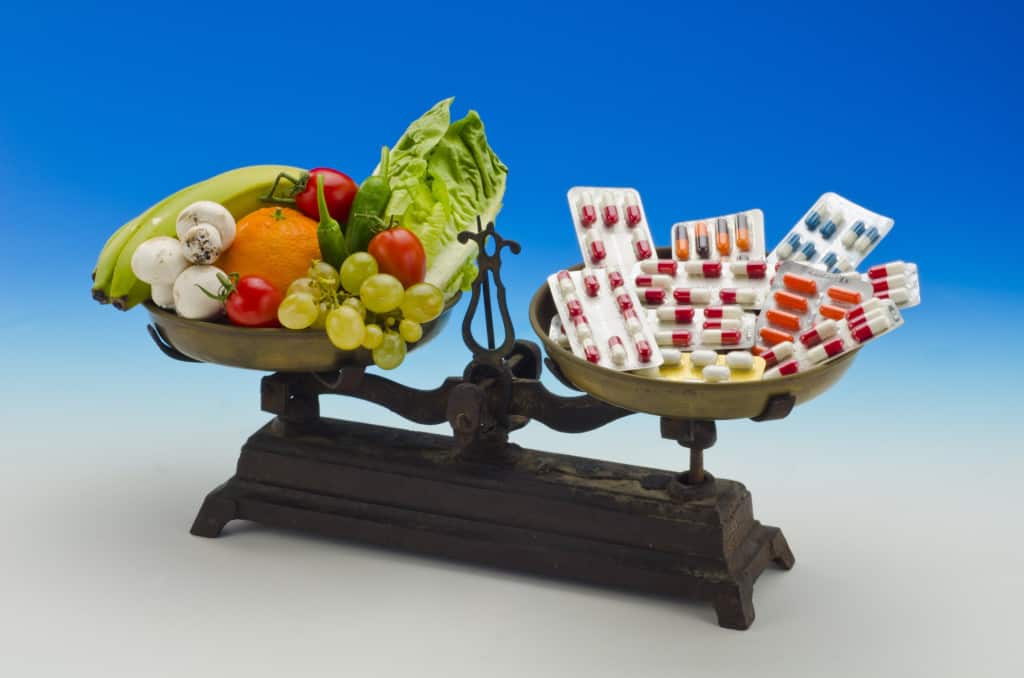All of these rules are subtly trying to get you to be more conscious of what you’re eating. It’s far too easy these days to consume more than you think you are, or more than you really need, especially when eating out. I’ve found that it’s impossible to tell any one person how much they should be eating. People have varying requirements, and it’s important for all of them to listen to their bodies to know when they should eat, and when they should stop.
- Get as much of your nutrition as possible from a variety of completely unprocessed foods. These include fruits and vegetables. But they also include meat, fish, poultry and eggs that haven’t been processed. In other words, when buying food at the market, focus on things that have not been been cooked, prepared or altered in any way. Brown rice over white rice. Whole grains over refined grains. You’re far better off eating two apples than drinking the same 27 grams of sugar in an eight-ounce glass of apple juice.
- Eat lightly processed foods less often. You’re not going to make everything yourself. Pasta, for instance, is going to be bought already prepared. You’re not going to grind your own flour or extract your own oil. These are meant to be eaten along with unprocessed foods, but try to eat less of them.
- Eat heavily processed foods even less often. There’s little high-quality evidence that even the most processed foods are dangerous. But keep your consumption of them to a minimum, because they can make it too easy to stuff in calories. Such foods include bread, chips, cookies and cereals. In epidemiologic studies, heavily processed meats are often associated with worse health outcomes, but that evidence should be taken with a grain of salt (not literally), as I’ve written about before.
- Eat as much home-cooked food as possible, which should be prepared according to Rule 1. Eating at home allows you to avoid processed ingredients more easily. It allows you full control over what you eat, and allows you to choose the flavors you prefer. You’re much less likely to stuff yourself silly if you eat home-cooked food. I’m not saying this is easy. Behavioral change takes repetition and practice. It also, unfortunately, takes time.
- Use salt and fats, including butter and oil, as needed in food preparation. Things like salt and fat aren’t the enemy. They are often necessary in the preparation of tasty, satisfying food. The key here is moderation. Use what you need. Seasoning is often what makes vegetables taste good. Don’t be afraid of them, but don’t go crazy with them either.
- When you do eat out, try to eat at restaurants that follow the same rules. Ideally, you should eat at restaurants that are creating all of their items from completely unprocessed foods. Lots and lots of restaurants do. Follow Rule 1 even while out to dinner. Some processing is going to be fine, but try to keep it to a minimum.
- Drink mostly water, but some alcohol, coffee and other beverages are fine. As I’ve pointed out before, you can find a study to show that everything either prevents or causes cancer — alcohol and coffee included. But my take is that the preponderance of evidence supports the inclusion of a moderate consumption of most beverages.
- Treat all beverages with calories in them as you would alcohol. This includes every drink with calories, including milk. They’re fine in moderation, but keep them to a minimum. You can have them because you like them, but you shouldn’t consume them as if you need them.
- Eat with other people, especially people you care about, as often as possible. This has benefits even outside those of nutrition. It will make you more likely to cook. It will most likely make you eat more slowly. It will also make you happy
I’ve avoided treating any food like the devil. Many nutrition experts do, and it may turn out they’re right, but at this point I think the jury is still out. I’ve therefore tried not to tell you to avoid anything completely. My experience tells me that total abstinence rarely works, although anecdotes exist to support that practice. I think you’ll find that many other diets and recommendations work under these rules. These are much more flexible and, I hope, reasonable than what some might prescribe.
These recommendations were written by Michael Pollan, an American author, journalist, activist, and professor of journalism at the UC Berkeley Graduate School of Journalism.

